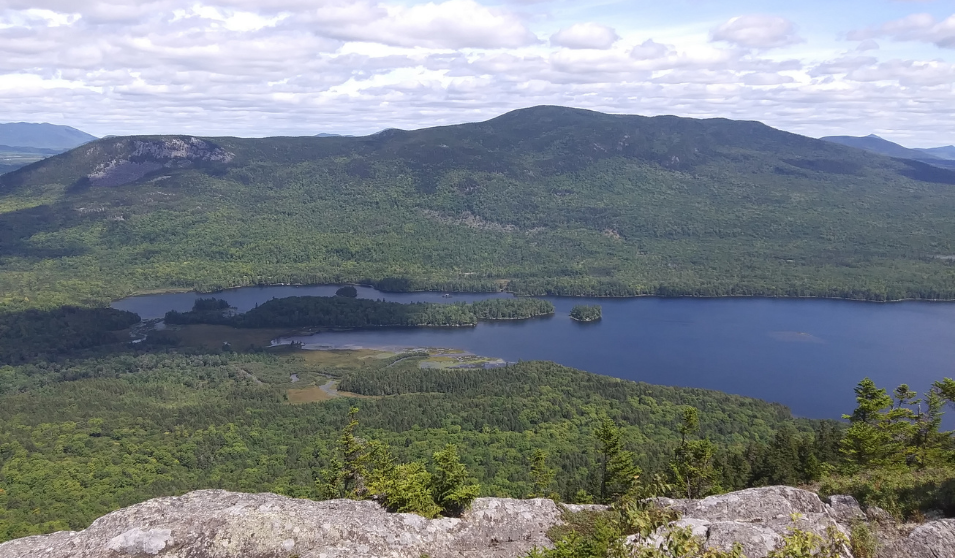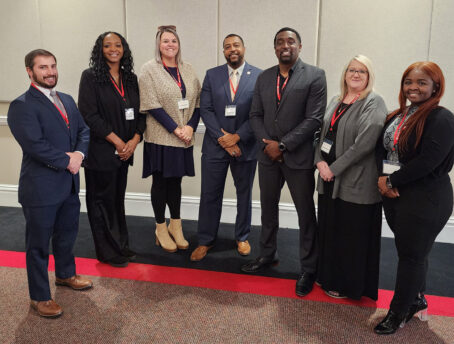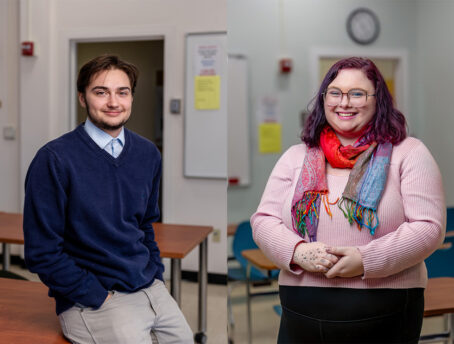Thank you to Dr. Rivi Handler-Spitz at Macalester College for introducing us to Joe.
Although much of what we hear about our rural towns and country places focuses on what is lacking, broken, or corrupted, the reality is that rural America is rich with community assets of all types. For rural schools in particular, these community assets produce a fertile learning landscape for students. Chief among these assets are teachers themselves. The leadership, innovation, and unmatched passion of rural educators contributes significantly to both student growth and community vitality. Joe Hennessey, a high school English teacher from Piscataquis County, Maine, believes in the power of education as an asset for individuals and places alike. When combined with the unique histories and landscapes of his central Maine place, Joe’s work invites students to embark on a pursuit of learning which unlocks personal and community transformation.
Life on the Frontier
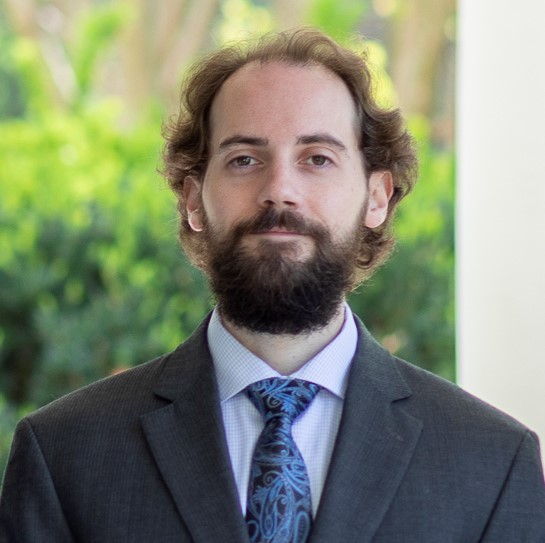
Joe has been a teacher for 10 years, and while he has “some experience with young grades prior to this position,” most of his tenure has been spent teaching eleventh and twelfth grades: “I’m primarily an English teacher,” he says, “but I also teach elective courses, including an interdisciplinary study course” for any student with the “interest and enthusiasm” to take on the venture. In all of Joe’s classes, he places a heavy value on the power of education as an asset to students' personal growth and career development, always finding new avenues for students to explore the world and apply themselves within it. In the context of English classes, Joe shares that he teaches “a variety of literature courses: American literature, world literature, advanced placement literature, and composition,” and he also “developed a technical English and writing laboratory course geared more toward people who are hoping to enter the trades immediately after high school and just need the basic communicative ability and might be more inclined to hands-on or manipulative based language.”
While Joe’s approach to education would be exemplary in any school setting, the impact his offerings have in a rural area are especially pronounced. All the more so for Piscataquis County, which has the honor of being one of the few counties east of the Mississippi River designated as “frontier.” He explains, “One of the things that makes Piscataquis County kind of remarkable is that, in terms of actual land area, the county is the size of the state of Connecticut but it has a total population of about 17,000 people.” Joe’s school serves around 600 K-12 students who largely come from areas in the southern half of the county but also from the northern “fringe areas” of Maine’s famous North Woods region.

Piscataquis County’s unique environment creates a one-of-a-kind community. Joe details how “Maine, by virtue of its very low population density, and the fact that there's very little movement into or out of the state, means that the social conditions for children to grow up here and complete their schooling are idiosyncratic, in a good way. Many of the students that I teach have gone to school together since kindergarten so they actually get the opportunity to grow up with one another as a consistent cohort.”
Although he had family from Maine, and spent some time growing up there, Joe moved to the district from Denver, Colorado and worried there may be some mistrust of a new face, but what he found was the opposite. The school and community were “very tolerant and welcoming,” he recalled, “it was clear from the first day that they were going to be proactive in trying to socially integrate me into the community with different means of doing so based on my interests.” Joe observes further that, since they spent their whole lives growing up there, “students are so socially conditioned to be cooperative and coexist with one another, that their default is to be kind and tolerant of one another.” The remote nature of Piscataquis County means that access to certain services are restricted or concentrated, nevertheless Joe underscores that working there has been “wonderful for me, a tremendous opportunity to build my career, integrate into a community, refine my craft, and ultimately serve students who are appreciative of what I'm able to do for them.”
The Intrinsic Value of Education
Joe’s determined commitment to serving students and growing in his profession stems from his childhood. “Teaching was always revered in my household growing up, especially on my mother's side–the Maine side–which had many many many educators,” Joe says. “So, I had that reference point about [education] being a noble profession, something that was a valuable way to contribute to your community and to serve other people.” He remembers loving books and “big questions” while in school himself, inspiring his choice to join the profession:
“I really observed in my own cohort as I was going through school that so many of the people that I knew didn't have affinity for reading, didn't have affinity for the big questions, and didn't feel engaged or energized by getting to go in and grapple with all this every day. I thought that maybe I would be able to contribute some unique perspective on how to do that, and maybe I would build that through curriculum and other points of inquiry to help people understand that they do have the capacity to do this for themselves.”

For him, education is as transformative and liberating as it is noble. Joe shares that one of the most rewarding aspects of education is “to actually experience the awe and the wonderment of being able to communicate with ideas across generations, civilizations, and eons; and to connect with those ideas and understand how that is still personally meaningful and relevant.” Over time, this ethos has informed how Joe approaches his work as teacher, sharing that:
“I believe the core principle of education is to cultivate intellect. One of the taglines I've developed to try and describe these things is: ‘Resources may differ, but reason overcomes’…The idea is that there are lots of things in life that are not distributed equally, but we all have the capacity to refine and cultivate our sense of intellect, our sense of inquiry, and our ability to think for ourselves. So, within my curriculum, I incorporate global events, art, multimedia, film, natural science, earth science, and all these sorts of things.”
Joe’s personal affinity for the power of education enables his students’ own accomplishments:
“I've had some pretty gifted writers who have done well on the AP exams, and that's fine as a metric of self-actualization and well-being, but they've also gone on to study medicine in order to become doctors and serve in rural communities, or to become chemical engineers, lawyers, and advocates, and all of that can be traced back in a meaningful way to challenging them to cultivate their intellect, to foster their own sense of intellectualism, and to help give them the tools to communicate and articulate that effectively.”
International Acclaim
One example of this affinity at play in the classroom is Joe’s global affairs class. In addition to undertaking a semester of rigorous analysis and investigation of current events, Joe’s students have an opportunity to take their knowledge and findings to Maine’s prestigious Camden Conference. This event, Joe explains, was formed over 30 years ago by the large community of retired State Department officials, CIA officers, and business executives who settled in Camden to retire but still sought to stay engaged with their trades. He continues, “Over time, the Conference has expanded and one of the initiatives that started about 10 years ago was to try and [involve] high school-age kids.” He mentions that there was some initial push back from this expert community, but they quickly realized that many of the students who participated produced outstanding work. “Over the seven years that I've been part of that Conference committee,” Joe says, “we've really grown the program and it's one of the big points of pride for our school.”
More than just a feather in the school’s cap, Joe emphasizes that the students themselves “are so enthusiastic to get to go and engage with big questions, respond to them, and create things to put out into the world. That's a very gratifying thing to be able to observe as a teacher, and even help facilitate.” Significantly, students who attend not only gain the benefit of an extraordinary opportunity, but those that do exceedingly well are awarded. Joe mentions how “every year that we've participated at least one of our students has placed in the essay contest and they usually get some sort of monetary award and their work published.” These early experiences with global experts near their Maine community have proven to be an invaluable asset for students, Joe asserts, empowering them not only to create awareness campaigns and fundraisers, but also to propel their careers as experts, activists, and military personnel.
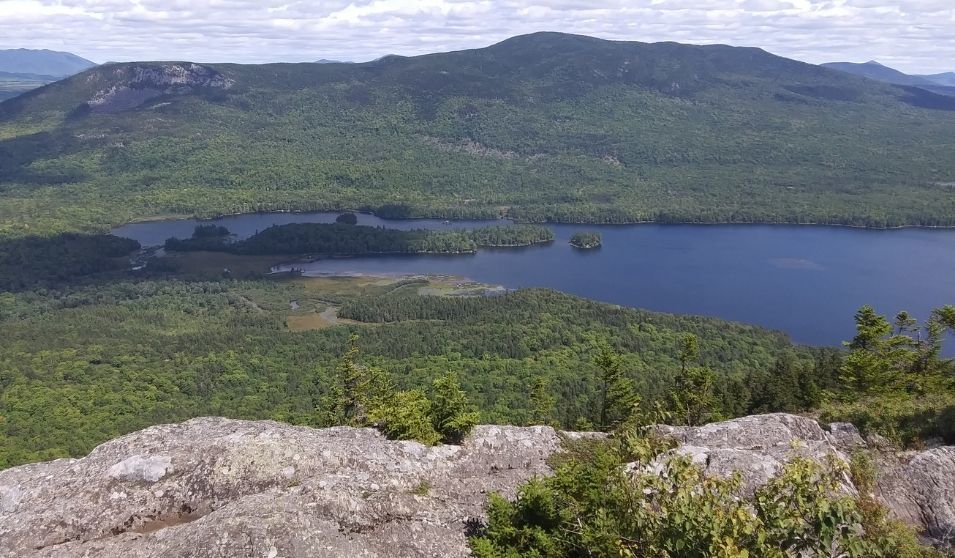
Even as he prepares the next generation of leaders to go out into the world, Joe reminds his students of the power of place–the influence of where they’re from–in all that they choose to do: “I make it plain that you don't necessarily have to forego some part of your regional identity just because you're going out and exploring something different. You always do have the opportunity to come back and take what you've learned and bring that home to your community.”
A Fruitful Endeavor
Student impact drives his work forward, but it’s the opportunity for personal growth as a teacher that keeps Joe passionate about the advantages of rural education. “Inside of a rural school, you are part of a professional community,” he outlines, “and within that you have the ability to make an immediate impact; and that's a very important thing. Especially for a young person who's entering into the field and looking for an opportunity, rural education is a very important opportunity to refine your craft, have the support of the administration, and to be given the flexibility and freedom to pursue your professional interests.” Along with professional freedom, Joe stresses that the small class sizes are a huge benefit:
“My class sizes are such that I rarely have a class of more than 18 people. That means that my typical student-to-teacher ratio is right about the magic number for secondary school, so I'm able to do flexible groupings and real group projects, to work with every single student every single day, to know every student and say good morning to them, and to ask how they're doing and actually give them that verbal and nonverbal support that every child needs–especially from a male teacher when that sort of presence may or may not be consistent in their lives. Those are all things that you can't necessarily quantify with any numerical value, but the value to the students and to the community is immediately obvious.”
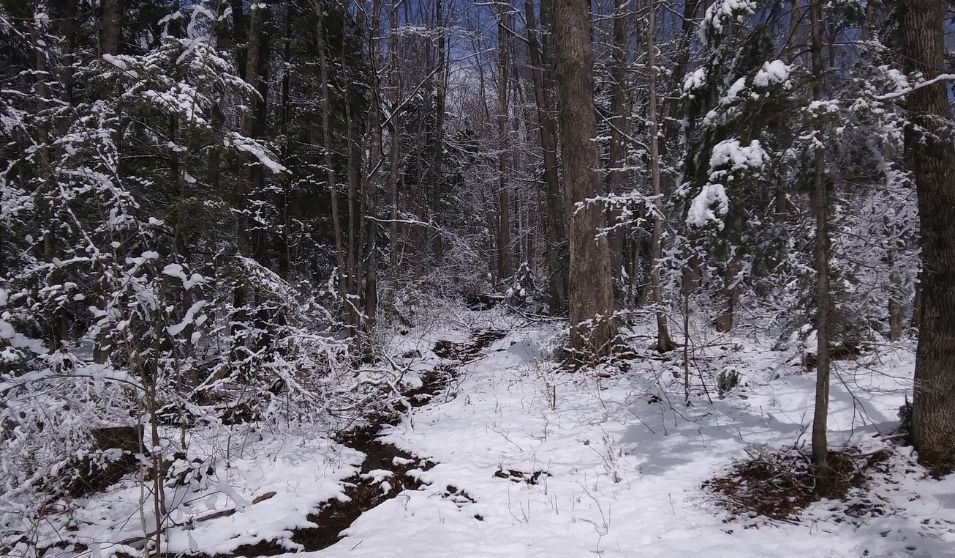
Joe’s unparalleled commitment to student success was as evident to his district administration as it was to the community as a whole. For his dedicated service to students and the profession, Joe was honored as Maine’s Teacher of the Year in 2019 after his principal submitted his name into the running. Through a series of essays, interviews, and formal presentations around the state, Joe stood out as an exemplary educator in his own right, but he was quick to share that spotlight with the school community that fostered his growth along the way. “The problem with any sort of award like that is that no person works in a vacuum,” Joe shares, “the only reason that I was able to experience this success is because I work in a supportive community with colleagues who are very passionate and care deeply about education. It was so gratifying for me to be able to see that and have that positive press be brought upon the school…that community aspect to the school is tremendously important, so it was just such a wonderful opportunity to share the work of not only my students and colleagues, but to highlight some of the challenges and assets of rural education.”
The Power of Rural Education
The narrative of rural deficit is strong, but authentic examples of invaluable assets in small towns are redefining our understanding of what, and who, rural places have to offer. Teachers are not only the physical drivers of education in schools, but they are an immense asset to their students and communities. Joe Hennessey’s work in Piscataquis County, Maine reveals the irreplaceable role of a passionate and visionary teacher-leader. Reflecting on the importance of education and teachers to their communities, Joe concludes that “this school itself is a pillar of the community–it's that upon which the other parts of the community are based. These are tremendously important institutions. They're not just brick and mortar institutions. They're social-emotional institutions, and a lot of people find affirmation in that work.”
We are grateful to Joe for sharing his story with us! If you would like to share 30 minutes of your time for an interview, please reach out to us at info@ruralschoolscollaborative.org. The I Am A Rural Teacher campaign is a collaborative effort with the National Rural Education Association and made possible through a grant from the Bill & Melinda Gates Foundation.

